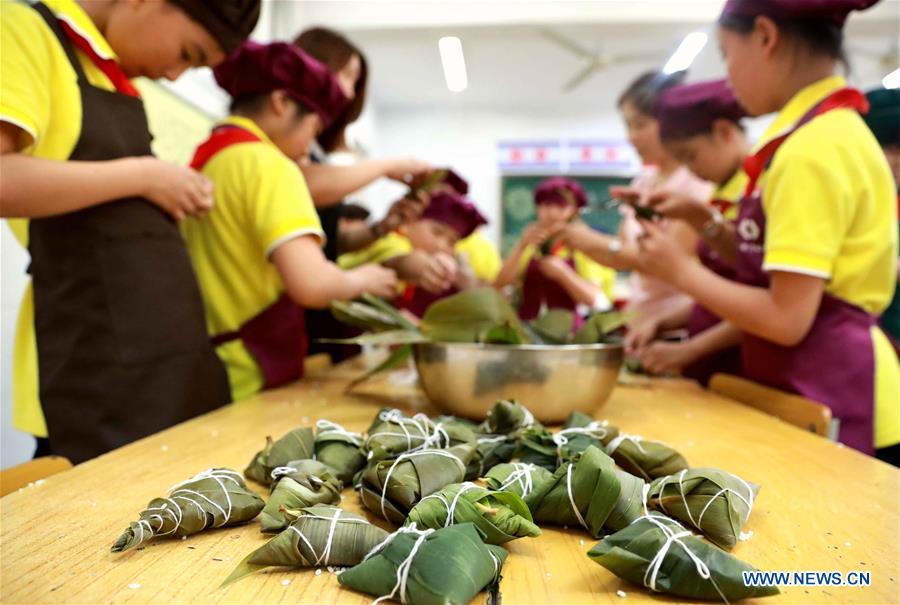Traditional customs bring us together
- By Zhou Jing
 0 Comment(s)
0 Comment(s) Print
Print E-mail China.org.cn, June 7, 2019
E-mail China.org.cn, June 7, 2019

Chinese people love all kinds of dumplings, especially sticky rice dumplings.
This Friday is the traditional Chinese Duanwu Festival, or Dragon Boat Festival, and one of the major customs is to make and eat sticky rice dumplings.
Though we can buy fresh or frozen sticky rice dumplings at the supermarket or online year round, they are still considered one of the most important elements to celebrate the festival. However, making them is another story.
I still remember three decades ago, my grandparents would prepare sticky rice, red dates, beans, honey and reed leaves one month in advance. Living in a small town with no supermarket, they would carefully peruse a street market, finding all the different ingredients among the many stands. Sometimes, my grandparents would miss the very last cluster of reed leaves at the market, so they had to get up early the next morning to try again.
Getting all the ingredients ready sometimes requires the whole family, or even the help from neighbors and friends. It's not easy, but it's fun and brings family members and friends together.
Today, many of us are so busy with work that we think buying food at the market and making dumplings by hand consumes too much time and is not worth doing.
Statistics from the Beijing Municipal Commission of Commerce showed that in 2018, more than 15 million sticky rice dumplings made under traditional brand Daoxiangcun were sold in Beijing's markets, registering a year-on-year increase of 10%. In the same year, the Beijing Municipal Bureau of Statistics said the city's population reached 21.54 million.
From the above statistics we can tell that on average, almost every one of Beijing's residents consumed about a half Daoxiangcun sticky rice dumpling last year. Many food shops sell sticky rice dumplings in Beijing, including time-honored brands such as Wufangzhai and Sanquan Food, and since most of them saw good sales last year, it's clear that most people don't make dumplings by themselves nowadays.
Since 2006, China has begun to celebrate its Cultural Heritage Day on the second Saturday of June. In 2017, the name was changed to Cultural and Natural Heritage Day. Through the years, people from all walks of life have discussed how to protect China's intangible cultural heritage, including traditional festivals. As we usher in the Duanwu Festival and the Cultural and Natural Heritage Day, go out there and make your own dumplings - let's keep the traditions alive.
If you would like to contribute, please contact us at opinion@china.org.cn.






Go to Forum >>0 Comment(s)